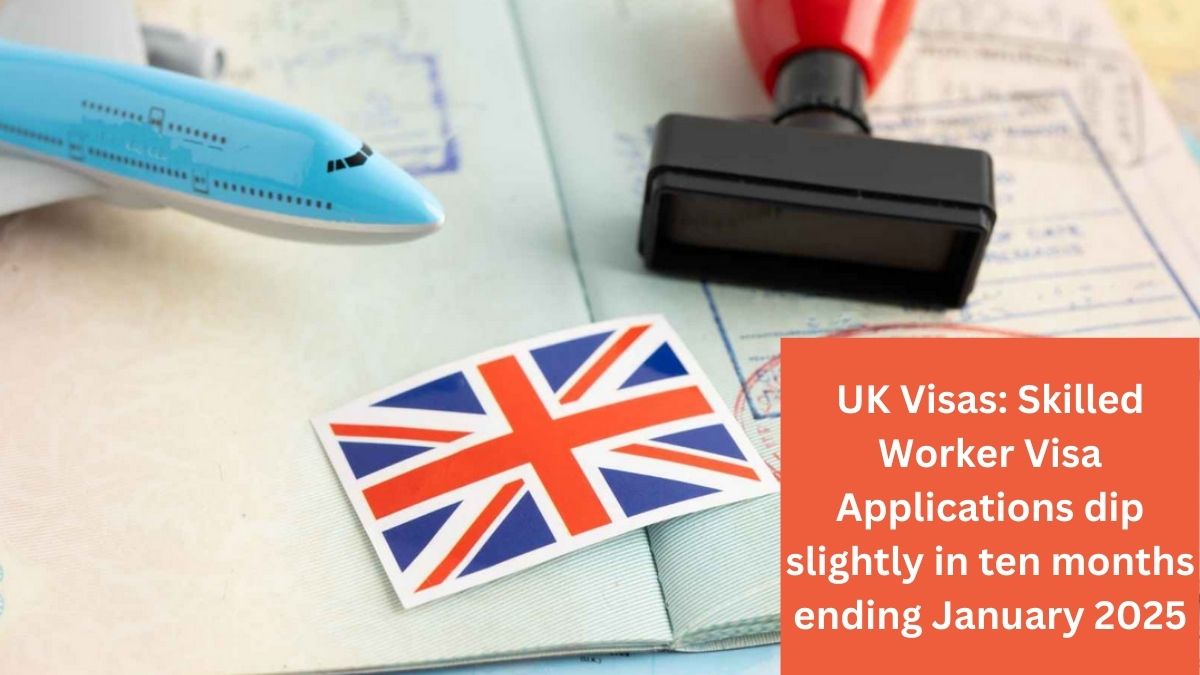Recent data indicates a significant reduction in the number of skilled worker and Health and Care Worker visas issued in the United Kingdom between April 2024 and January 2025. This trend reflects the impact of recent policy amendments and heightened scrutiny within the UK’s immigration framework.

Decline in Health and Care Worker Visa Applications
The Health and Care Worker visa category has witnessed a substantial downturn. Between April 2024 and January 2025, there were 23,200 main applicant submissions for Health and Care Worker visas, marking an 81% decrease compared to the same period in the previous year. This sharp decline is attributed to policy changes implemented in March 2024, which restrict migrant care workers from bringing dependents into the country. Consequently, the applicant pool is now limited to single individuals or those willing to relocate without their families.
Historically, the inclusion of care workers on the Shortage Occupation List led to a surge in applications, peaking at 18,300 in August 2023. However, this upward trend reversed, with monthly applications dropping to 2,400 in March 2024 and stabilizing around 1,900 by January 2025. The decrease in dependent applications is also notable, falling to 4,000 in January 2025.
Trends in Skilled Worker Visa Applications
The Skilled Worker visa category has experienced fluctuations over the observed period. Monthly applications remained steady at approximately 6,000 between January 2022 and March 2024. A temporary spike to 10,100 applications occurred in April 2024, likely due to applicants rushing to submit before the enforcement of stricter immigration rules. Subsequently, numbers reverted to average levels, with 4,000 applications recorded in January 2025.
From April 2024 to January 2025, there were 54,900 main applicant submissions for Skilled Worker visas, representing a 10% decrease from the corresponding period in the previous year. Dependent applications mirrored this trend, totaling 46,700—a 7% reduction compared to the prior year.
Impact of Immigration Policy Changes
Several policy adjustments have directly influenced these trends:
-
Dependent Restrictions for International Students and Social Care Workers: Effective January 1, 2024, international students, except those enrolled in postgraduate research programs or recipients of government-funded scholarships, are prohibited from bringing dependents. Additionally, as of March 11, 2024, social care workers are barred from sponsoring visas for partners and children.
-
Increased Salary Thresholds for Skilled Workers: On April 4, 2024, the minimum salary requirement for Skilled Worker visa sponsorship rose from £26,200 to £38,700. This significant increase poses challenges for employers in sectors like hospitality, social care, and retail, where wages often fall below the new threshold. The ‘going rate’ specific to each occupation has also seen substantial hikes.
-
Revised Immigration Salary List: The list of occupations eligible for visa sponsorship at reduced salary levels has been condensed and rebranded as the Immigration Salary List, narrowing the scope for potential applicants.
-
Higher Income Requirement for Sponsoring Family Members: As of April 11, 2024, the minimum income necessary to sponsor a spouse or partner visa increased from £18,600 to £29,000, potentially deterring applicants from lower-income brackets.
Statistical Overview
The following table summarizes the key statistics for Skilled Worker and Health and Care Worker visa applications between April 2024 and January 2025:
| Visa Category | Main Applicant Applications | Percentage Change | Dependent Applications | Percentage Change |
|---|---|---|---|---|
| Health and Care Worker Visas | 23,200 | -81% | 4,000 | -76% |
| Skilled Worker Visas | 54,900 | -10% | 46,700 | -7% |
Data Source: UK Home Office
The observed decline in visa applications is a multifaceted issue influenced by recent policy changes, increased salary thresholds, and enhanced compliance measures. These factors collectively contribute to the evolving landscape of the UK’s skilled labor market and immigration system.
Frequently Asked Questions
Q1: What led to the significant decrease in Health and Care Worker visa applications?
A1: The 81% reduction is primarily due to policy changes in March 2024 that prevent migrant care workers from bringing dependents, limiting applications to individuals without family obligations.
Q2: How have salary threshold changes affected Skilled Worker visa applications?
A2: The increase in the minimum salary requirement to £38,700 has made it challenging for employers in lower-paying sectors to sponsor skilled workers, contributing to a 10% decline in applications.
Q3: What are the new rules regarding dependents for international students?
A3: As of January 1, 2024, only international students enrolled in postgraduate research courses or those with government-funded scholarships can bring dependents; others are restricted from doing so.
Q4: Why was there a temporary spike in Skilled Worker visa applications in April 2024?
A4: The surge to 10,100 applications in April 2024 is likely due to applicants expediting their submissions ahead of the implementation of stricter immigration policies.
Q5: How have dependent applications trended in recent months?
A5: Dependent applications have decreased, with Health and Care Worker visa dependents falling to 4,000 in January 2025, reflecting the impact of new restrictions and policy changes.
These developments underscore the dynamic nature of the UK’s immigration policies and their direct effects on skilled labor mobility.
Click here to know more.
Kishan is a knowledgeable writer specializing in agriculture and the latest government job recruitments, delivering clear and insightful content to inform and empower readers.
